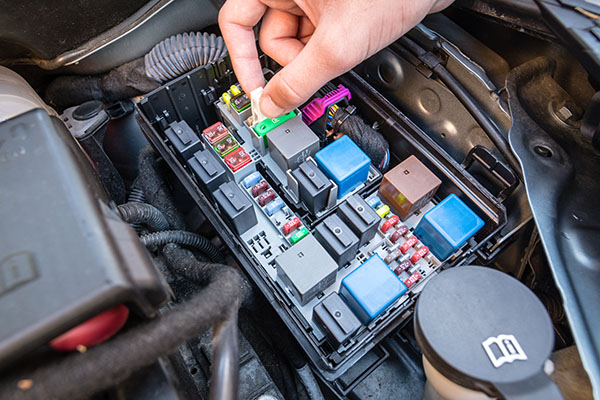
A car's fuse box is a crucial component of its electrical system, serving as a safety mechanism to protect the vehicle's circuits from overloading and potential damage. It contains a series of fuses that are designed to break the circuit in the event of an electrical fault or excessive current flow. But how exactly does a fuse box work?
Where Is The Fuse Box?
The location of the fuse box may vary depending on the vehicle's make and model. In many cars, the fuse box is located under the dashboard, near the driver's side, or in the engine compartment. The vehicle's owner's manual or a fuse box diagram can help locate the specific fuse box and identify the fuses for each circuit.
Main Purpose: Circuit Protection
The primary purpose of a fuse box is to protect the electrical circuits in the car from damage caused by overloading or short circuits. Each electrical circuit in the vehicle is connected to a specific fuse in the fuse box. If there is an electrical fault or an excessive current flow, the fuse will "blow" or "burn out," breaking the circuit and preventing further damage.
Are There Different Types OF Fuses?
Fuses are rated based on their amperage, which determines the maximum current they can safely handle. The fuse rating should match the electrical load of the circuit it protects. If the current exceeds the fuse's rating, the fuse will blow, interrupting the circuit and preventing potential damage to the wiring or connected components.
How To Identifying And Replacing A Fuse
A blown fuse can often be identified visually by inspecting the fuse element inside the transparent fuse housing. If the element appears broken or melted, it indicates that the fuse has blown and needs to be replaced. Some fuse boxes also have indicator lights or digital displays that alert the driver when a fuse has blown.
When a fuse blows, it is important to replace it with a new one with the same amperage rating. Most fuse boxes include spare fuses for easy replacement. However, it is essential to identify and address the underlying cause of the blown fuse, such as a short circuit or faulty component, to prevent the issue from recurring.
And if you don't want to do this job on your own, call us at Euro Car Tech and we will be happy to help! It's as simple as booking an appointment and driving to the shop!